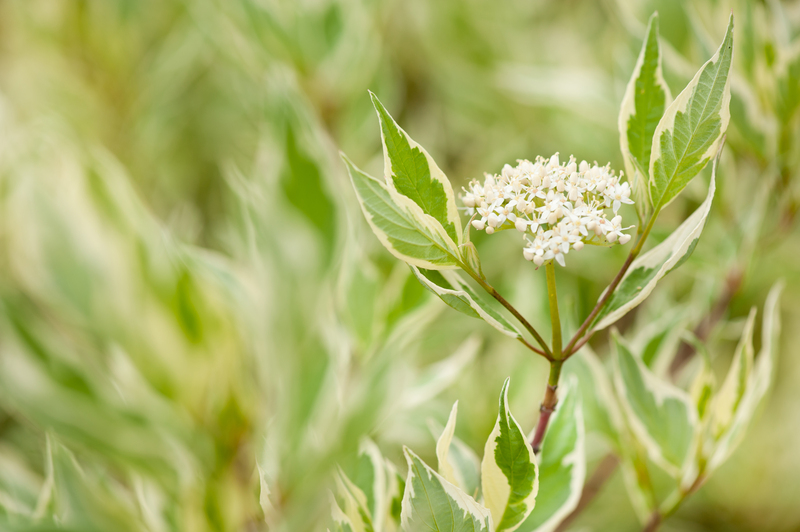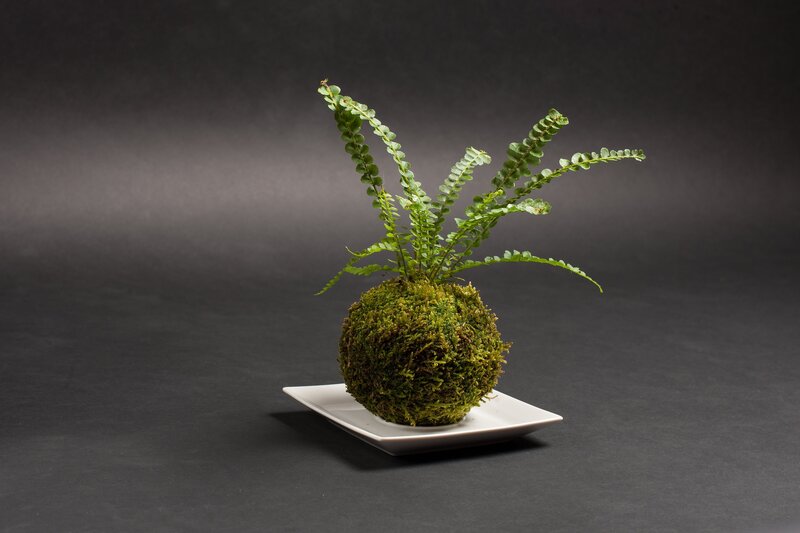Organic Waste Reimagined as Rich, Fertile Soil
Posted on 07/06/2025
Organic Waste Reimagined as Rich, Fertile Soil: A Comprehensive Guide
As the world embraces greener lifestyles, the quest to manage our organic waste has shifted dramatically. Where once food scraps, yard clippings, and biodegradable byproducts cluttered landfills, innovative methods now reimagine organic waste as rich, fertile soil. In this extensive guide, we'll explore the transformation, benefits, and eco-friendly strategies that turn our daily waste into a valuable soil resource.
The Significance of Organic Waste Transformation
Before we dig deep into the details, let's clarify: what is organic waste? Organic waste refers to any biodegradable material derived from living organisms, such as plants and animals. Examples include kitchen scraps, yard trimmings, and even certain types of paper. Traditionally, these materials ended up in landfills, producing damaging greenhouse gases like methane. But what if this organic refuse could fuel our gardens instead?
Why Organic Waste Should Not Be Wasted
- Landfill Overload: Organic material constitutes up to 30% of landfill waste, straining municipal disposal systems.
- Greenhouse Gas Emissions: In landfills, decomposing organic waste releases methane--a potent greenhouse gas that accelerates climate change.
- Lost Nutrients: Disposing of organic waste denies soils essential nutrients that could foster healthy plant growth.
By reimagining organic waste as fertile soil, we can shift from a cycle of waste to one of renewal and sustainability.

The Science Behind Transforming Organic Waste into Fertile Soil
Turning kitchen scraps or yard debris into dark, nutrient-rich compost is an ancient practice, but one underpinned by fascinating science. The transformation, known as composting, hinges on the activity of microorganisms, fungi, and even worms that decompose organic matter into humus: the black gold gardeners prize.
Key Processes in Composting
- Decomposition: Bacteria, fungi, and insects break down organic material.
- Aeration: Oxygen is vital to support aerobic microbes and minimize foul odors.
- Moisture Balance: Too wet or dry, and decomposition will slow or even halt.
- Temperature: Successful compost piles heat up to 130-160?F (54-71?C), speeding up breakdown and killing most pathogens.
Materials: What Can Be Composted?
For best results, use a balanced blend of "browns" (carbon-rich materials such as dried leaves, paper, or straw) and "greens" (nitrogen-rich matter like food scraps or fresh grass clippings).
- Browns: Dried leaves, wood chips, shredded newspaper
- Greens: Vegetable peels, coffee grounds, eggshells, grass clippings
Avoid composting meats, dairy, cook oils, or diseased plants to prevent pests and pathogens from spreading.
Methods to Transform Organic Waste into Fertile Soil
1. Traditional Composting
This method uses outdoor bins or piles. Regular turning, appropriate moisture, and a measured mix of materials transform organic waste over 3 to 12 months into crumbly, earthy compost.
2. Vermicomposting
Utilizing earthworms, especially red wigglers, this method is ideal for apartments or small urban spaces. Worms digest food scraps, leaving behind rich castings that outperform traditional compost for plant nutrition.
3. Bokashi Composting
Bokashi is an anaerobic (no oxygen) method originating in Japan. It ferments organic waste using "effective microorganisms." This process is quicker and can handle fermented dairy and meat products, which don't break down as easily in standard compost piles.
4. Trench and Sheet Composting
- Trench Composting: Bury kitchen scraps directly in the garden 8-12 inches deep. Soil microorganisms break it down, enriching the earth in situ.
- Sheet Composting: Spread organic matter directly on the soil surface as mulch. Over time, it decomposes, suppressing weeds and nourishing the topsoil.
Composting at Home: Step-by-Step Guide
- Choose Your Location: Find a shaded, well-drained spot for your compost pile or bin.
- Layer Browns and Greens: Start with coarse browns at the bottom, then alternate layers of green and brown material.
- Maintain Moisture: Compost should feel like a wrung-out sponge--not too dry or soggy.
- Turn Regularly: Aerate your pile every 1-2 weeks to speed decomposition.
- Harvest Compost: In several months, finished compost looks dark, smells earthy, and crumbles easily.
The Environmental and Social Benefits of Composting Organic Waste
1. Reduced Landfill Burden
Diverting organic waste from landfills makes space for non-biodegradable material and slashes methane emissions--the most significant contributor to global warming after CO2.
2. Restoring Soil Fertility and Structure
Compost boosts soil fertility by providing plant-essential nutrients (nitrogen, phosphorus, potassium) and improving soil structure, thereby promoting growth and resilience in crops and lawns alike. Healthier soil holds water longer, reducing irrigation needs, and its improved structure resists erosion.
3. Promoting Biodiversity
- Enriches habitats for soil microbes, worms, and insects
- Fosters healthier root systems that support pollinators and beneficial wildlife
4. Closing the Nutrient Loop
Turning organic waste into fertile soil makes our food systems circular. Instead of treating food and yard waste as garbage, composting recycles nutrients back into the earth, nourishing the next crop without synthetic inputs.
5. Economic and Community Advantages
- Reduces waste management costs for cities and households
- Inspires community gardens and educational projects
- Creates green jobs in waste collection, composting, and soil sales
Innovations in Organic Waste Management
Thanks to increasing awareness and policy support, both cities and entrepreneurs have embraced new strategies for organic waste transformation:
- Commercial Composting Facilities: Many urban centers now offer communal drop-off or curbside collection for food scraps.
- On-Site Composters: Devices like automatic composting bins accelerate the conversion and fit into modern kitchens.
- Industrial Anaerobic Digesters: These systems process food waste to create both compost and biogas--clean, renewable energy.
- Biodegradable Packaging: Plant-based plastics and containers can now be composted, minimizing plastic pollution.
Using Your Home-Made Rich, Fertile Soil
Once your compost is ready, here's how to fully benefit from organic waste reimagined as fertile soil:
- Topdressing Lawns: Sprinkle a thin layer to invigorate turf, improve drainage, and promote healthy microbe activity.
- Vegetable Gardens: Mix compost deeply into beds or use as a top mulch to encourage strong root growth and higher yields.
- Houseplants: Blend compost with potting soil to nourish indoor greenery without synthetic fertilizers.
- Tree and Shrub Planting: Add compost to planting holes to establish healthier new growth.
Tips for Successful Organic Waste Composting
- Chop Large Pieces: Smaller bits decompose faster, so cut or shred woody or bulky items.
- Monitor Your Ratio: Too many "greens" cause odors; too many "browns" slow down the process.
- Keep It Moving: Turn compost to aerate and accelerate decomposers.
- Troubleshooting: Smell ammonia? Add more browns. Too dry? Add greens or a splash of water.
Barriers to Widespread Organic Waste Repurposing and Solutions
While the practice grows in popularity, obstacles remain:
- Lack of Awareness: Many people don't realize the potential of their household scraps. Education campaigns, workshops, and clear guidelines can change that.
- Urban Space Constraints: Small-space methods like worm bins or community drop-off points are effective.
- Contamination: Non-compostable items (plastic, chemicals) can reduce compost quality. Clear labeling and collection guidance are essential.
- Time and Effort: Automatic composters and streamlined municipal systems minimize the labor required.
Frequently Asked Questions About Reimagining Organic Waste
What can and can't be composted at home?
Most fruit and vegetable scraps, coffee grounds, eggshells, and yard waste are ideal for composting. Avoid adding meat, dairy, oils, diseased plants, or pet droppings.
How long does it take to turn organic waste into rich compost?
Depending on your method and how actively you manage the pile, quality compost can be ready in 2-12 months.
Does composting smell bad?
Properly balanced compost piles smell earthy. Foul odors usually signal imbalances--adjust your greens-to-browns ratio or improve aeration.
Is homemade compost safe for all plants?
Yes, provided you avoid composting toxic or diseased material. Well-cured compost is safe for vegetables, flowers, trees, and even houseplants.
Can I compost in an apartment?
Absolutely! Worm bins, bokashi systems, and electric composters all suit apartment living, producing little to no odor and fitting small spaces.

Conclusion: Envision a Greener Tomorrow with Fertile Soil from Organic Waste
In an era where sustainability is vital, reimagining organic waste as rich, fertile soil offers a simple but powerful tool for environmental protection, resource regeneration, and healthier living spaces. Whether on a backyard scale or as part of global efforts, transforming organic refuse into compost is a solution within everyone's reach. Take the leap--turn kitchen scraps and yard clippings into thriving gardens and lush landscapes by embracing the art and science of composting. With every banana peel and coffee ground, you're not just reducing waste; you're replenishing the earth for generations to come.
Further Reading and Resources
Start today: Transform your organic waste into fertile soil--your garden, wallet, and planet will thank you!
Latest Posts
Master the Craft: Innovative Shapes for Hedge Trimming
Shade-Loving Climbers: Breathing Life into Dark Corners
Winterproof Techniques for Your Beloved Garden
Unveiling the Secrets of Successful Container Gardening
Effortless Green Spaces: 5 Cost-Effective Garden Ideas to Suit Any Budget

